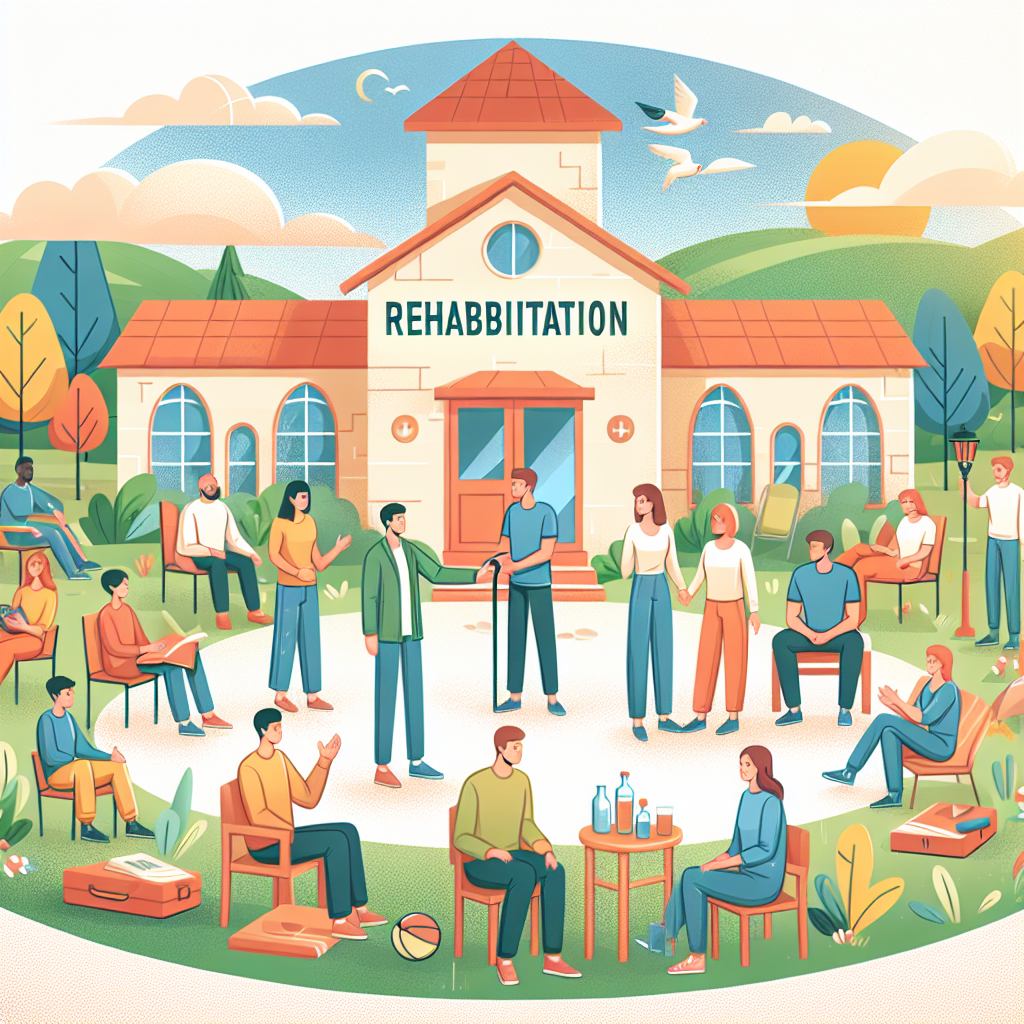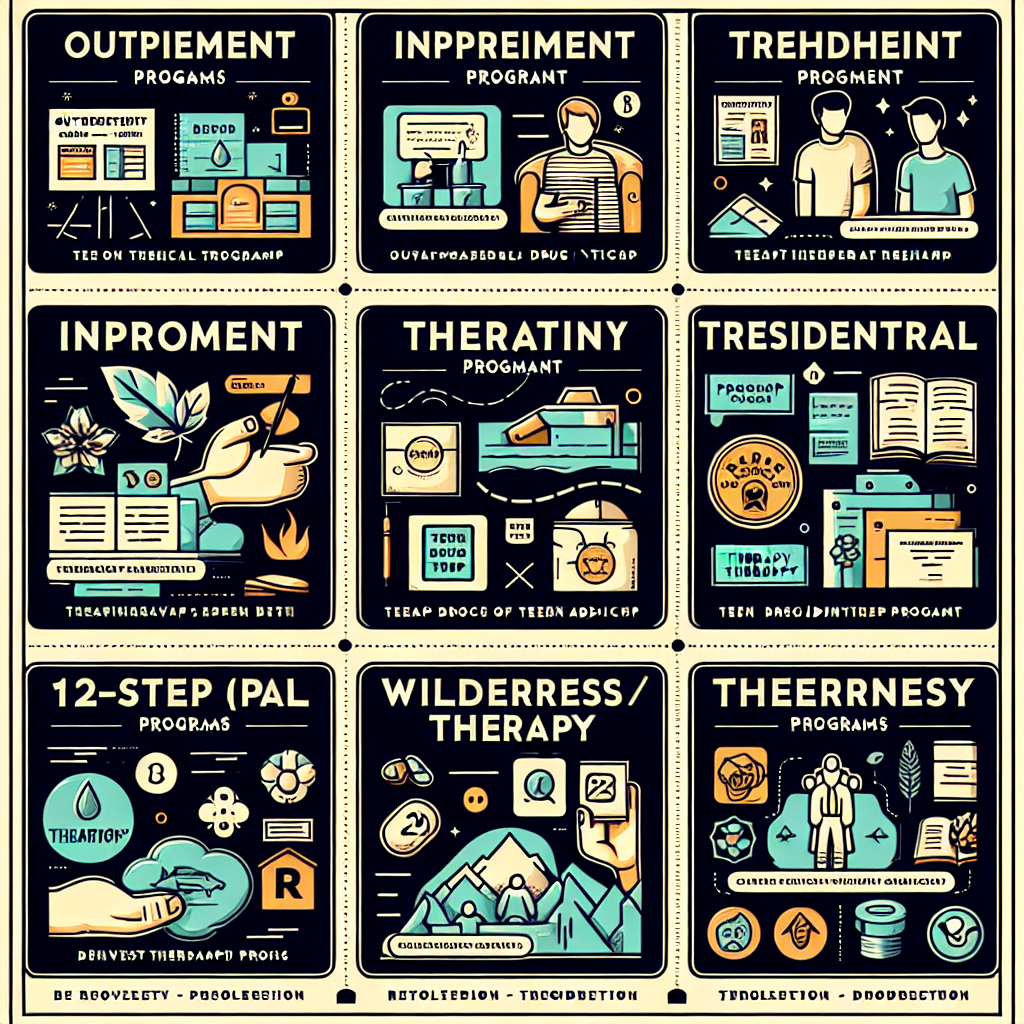-
Table of Contents

“Empowering Futures: Overcoming Technology Addiction in Young Adults”
Introduction
Rehabilitation programs for young adults addressing technology addiction are designed to combat the pervasive and growing issue of excessive technology use, which can interfere with daily life, mental health, and social relationships. These programs typically incorporate a multifaceted approach that includes cognitive-behavioral therapy (CBT), individual and group counseling, and digital detox strategies to help individuals regain control over their technology use. By fostering a supportive environment, these programs aim to educate young adults about the risks of technology addiction, develop healthier habits, and promote a balanced lifestyle that integrates technology use in a more mindful and controlled manner. Additionally, family involvement and aftercare planning are often integral components, ensuring that young adults have the necessary support systems in place to maintain their progress and prevent relapse.
Effective Strategies in Rehab Programs for Young Adults Battling Technology Addiction
In today’s digital age, technology addiction has emerged as a significant concern, particularly among young adults. The omnipresence of smartphones, social media, and online gaming has led to an increasing number of individuals struggling to maintain a healthy balance between their virtual and real lives. Recognizing the gravity of this issue, rehab programs for young adults have developed effective strategies to address technology addiction, offering hope and a path to recovery.
One of the primary strategies employed by these rehab programs is the implementation of digital detox periods. During these detox phases, individuals are encouraged to disconnect from all forms of technology, allowing them to break free from the constant barrage of digital stimuli. This period of disconnection is crucial as it helps young adults to recalibrate their minds and bodies, fostering a sense of clarity and focus that is often clouded by excessive screen time. By stepping away from their devices, participants can begin to reconnect with themselves and the world around them, laying the foundation for a healthier relationship with technology.
In addition to digital detox, rehab programs emphasize the importance of developing healthy coping mechanisms. Many young adults turn to technology as a means of escaping stress, anxiety, or other emotional challenges. To address this, rehab programs incorporate various therapeutic approaches such as cognitive-behavioral therapy (CBT), mindfulness practices, and group therapy sessions. These therapeutic interventions equip individuals with the tools they need to manage their emotions and stressors without resorting to technology. By fostering emotional resilience and self-awareness, young adults can learn to navigate life’s challenges in a more balanced and constructive manner.
Moreover, rehab programs for technology addiction often include educational components that aim to raise awareness about the impact of excessive technology use. Workshops and seminars are conducted to educate participants about the potential physical, mental, and social consequences of technology addiction. Understanding the science behind addiction and its effects on the brain can be a powerful motivator for change. Armed with this knowledge, young adults are better prepared to make informed decisions about their technology use and to recognize the signs of addiction before it spirals out of control.
Another effective strategy is the promotion of physical activity and outdoor experiences. Engaging in physical exercise and spending time in nature have been shown to have numerous benefits for mental health and well-being. Rehab programs often incorporate activities such as hiking, yoga, and team sports to encourage participants to reconnect with their bodies and the natural world. These activities not only provide a healthy alternative to screen time but also help to build a sense of community and support among participants. The camaraderie and shared experiences fostered through these activities can be instrumental in the recovery process.
Furthermore, rehab programs place a strong emphasis on building life skills and fostering personal growth. Young adults are encouraged to explore new hobbies, interests, and career aspirations that do not involve technology. By discovering and nurturing their passions, individuals can develop a sense of purpose and fulfillment that transcends the digital realm. This holistic approach to recovery ensures that participants are not only addressing their technology addiction but also building a foundation for a more balanced and meaningful life.
In conclusion, rehab programs for young adults battling technology addiction employ a multifaceted approach that includes digital detox, therapeutic interventions, education, physical activity, and personal development. These strategies work in tandem to help individuals break free from the grip of technology addiction and to cultivate a healthier, more balanced relationship with the digital world. Through these comprehensive and compassionate programs, young adults are empowered to reclaim their lives and to embark on a journey of recovery and self-discovery.
The Role of Therapy in Addressing Technology Addiction in Young Adult Rehab Programs
In the modern age, technology has become an integral part of our daily lives, offering numerous benefits but also posing significant challenges, particularly for young adults. The rise of technology addiction among this demographic has prompted the development of specialized rehab programs that focus on addressing this growing concern. Central to these programs is the role of therapy, which serves as a cornerstone in helping young adults overcome their dependency on technology and reclaim control over their lives.
Therapy in young adult rehab programs is multifaceted, encompassing various approaches tailored to meet the unique needs of each individual. Cognitive-behavioral therapy (CBT) is one of the most effective methods used to address technology addiction. By helping individuals identify and change negative thought patterns and behaviors associated with their technology use, CBT empowers young adults to develop healthier habits. Through this therapeutic process, they learn to recognize the triggers that lead to excessive technology use and develop coping strategies to manage these triggers effectively.
In addition to CBT, group therapy plays a crucial role in the rehabilitation process. Group therapy sessions provide a supportive environment where young adults can share their experiences and challenges with peers who are facing similar struggles. This sense of community fosters a feeling of belonging and reduces the isolation often associated with technology addiction. By engaging in open and honest discussions, participants gain valuable insights and encouragement from one another, which can be instrumental in their recovery journey.
Moreover, family therapy is an essential component of rehab programs for young adults. Technology addiction not only affects the individual but also has a profound impact on family dynamics. Family therapy sessions aim to rebuild trust and improve communication within the family unit. By involving family members in the therapeutic process, young adults receive the support and understanding they need from their loved ones, which can significantly enhance their chances of successful recovery.
Another critical aspect of therapy in addressing technology addiction is the incorporation of mindfulness and stress management techniques. Many young adults turn to technology as a means of escaping stress and anxiety. Mindfulness practices, such as meditation and deep breathing exercises, help individuals become more aware of their thoughts and emotions, allowing them to manage stress in healthier ways. By integrating these techniques into their daily routines, young adults can reduce their reliance on technology as a coping mechanism.
Furthermore, experiential therapies, such as art therapy, music therapy, and outdoor activities, offer alternative ways for young adults to express themselves and find fulfillment outside of technology. These therapies encourage creativity, self-discovery, and personal growth, providing a holistic approach to recovery. By engaging in these activities, individuals can develop new interests and hobbies that contribute to a balanced and fulfilling life.
The role of therapy in addressing technology addiction in young adult rehab programs is undeniably vital. Through a combination of cognitive-behavioral therapy, group therapy, family therapy, mindfulness practices, and experiential therapies, these programs offer a comprehensive and supportive framework for recovery. By addressing the underlying issues that contribute to technology addiction and equipping young adults with the tools they need to manage their technology use, therapy paves the way for lasting change and personal growth. As young adults navigate the challenges of the digital age, the therapeutic support provided by rehab programs can inspire them to lead healthier, more balanced lives, free from the constraints of technology addiction.
Q&A
1. **Question:** How do rehab programs for young adults typically address technology addiction?
**Answer:** Rehab programs for young adults typically address technology addiction through a combination of cognitive-behavioral therapy (CBT), digital detox periods, and education on healthy technology use. These programs often include individual and group therapy sessions to help young adults understand the underlying issues contributing to their addiction and develop coping strategies.
2. **Question:** What role does family involvement play in rehab programs for young adults with technology addiction?
**Answer:** Family involvement plays a crucial role in rehab programs for young adults with technology addiction. Programs often include family therapy sessions to improve communication, set healthy boundaries, and educate family members on how to support their loved one’s recovery. This holistic approach helps create a supportive environment that reinforces positive behavior changes.
Conclusion
Rehab programs for young adults address technology addiction by incorporating a multifaceted approach that includes digital detoxification, cognitive-behavioral therapy (CBT), and educational workshops. These programs often emphasize the development of healthy coping mechanisms, social skills, and time management strategies to replace excessive technology use. Additionally, they may involve family therapy to ensure a supportive home environment and ongoing aftercare plans to prevent relapse. By targeting the psychological, social, and behavioral aspects of technology addiction, these programs aim to restore balance and promote overall well-being in young adults.



